- Home
- Shirlee McCoy
The Orchard at the Edge of Town
The Orchard at the Edge of Town Read online
FALLING IN LOVE IN APPLE VALLEY
“Where I come from, churches are always open to the public,” Simon said. “The same is true here in Apple Valley. You can go anytime. Day or night that building will be unlocked.”
“Good to know.” She settled back against the bench, turned her gaze on Simon. She had the bluest eyes he’d ever seen and the kind of fair complexion he usually associated with redheads. Freckles danced across her cheeks and there was a tiny smear of ice cream at the corner of her lips.
He wiped it away the same way she’d done with Rori, his thumb running along the corner of her mouth. It should have been an innocent gesture, one friend helping out another, the touch there and gone without even a moment of anything else. But something happened when he touched her skin. Not fireworks or sparks. Just . . . heat. The kind he’d tried to avoid the past few years.
Her eyes widened, and he knew she felt it too. Knew he should move his thumb and ease away and pretend things were just the same as they’d been two seconds ago.
Problem was, he’d never been good at pretending . . .
Books by Shirlee McCoy
THE HOUSE ON MAIN STREET
THE COTTAGE ON THE CORNER
THE ORCHARD AT THE EDGE OF TOWN
Published by Kensington Publishing Corporation
THE ORCHARD AT THE EDGE OF TOWN
SHIRLEE McCOY
ZEBRA BOOKS
KENSINGTON PUBLISHING CORP.
http://www.kensingtonbooks.com
All copyrighted material within is Attributor Protected.
Table of Contents
FALLING IN LOVE IN APPLE VALLEY
Books by Shirlee McCoy
Title Page
Chapter One
Chapter Two
Chapter Three
Chapter Four
Chapter Five
Chapter Six
Chapter Seven
Chapter Eight
Chapter Nine
Chapter Ten
Chapter Eleven
Chapter Twelve
Chapter Thirteen
Chapter Fourteen
Chapter Fifteen
Chapter Sixteen
Chapter Seventeen
Chapter Eighteen
SWEET HAVEN,
Copyright Page
Chapter One
King Henry III gave up the ghost on Monday, September 16th, at 5:55 in the morning. One long puff, one quick choke, a slow roll down a small hill, and he was gone. Just like that.
“Dang it all to Grandma Sapphire’s plantation and back!” Apricot Miller dropped her head onto Henry’s wrinkled faux leather steering wheel and closed her eyes. She didn’t blame the old truck for finally breathing its last. She’d left Los Angeles in a hurry, and she hadn’t had time to get the old boy the tune-up he’d needed. To add insult to injury, she’d hooked Henry to the big silver trailer her dad had hauled from Happy Dale, Pennsylvania. A perfect wedding present for his daughter, Hubert had said. There’d been no wedding, but Apricot had taken the gift anyway. She’d needed something to shove all her stuff into, and she’d been in too much of a hurry to rent a moving van.
All Lionel’s fault. Two-timing loser that he was.
But she wasn’t going to think about that.
Not when Aunt Rose’s house was still three miles down the country road, and not when Apricot was still wearing the giant pink concoction of a wedding dress that she’d spent way too much money on. She’d opposed the dress on principle but had agreed to it in the spirit of harmony.
Harmony?
Ha!
Her almost-mother-in-law didn’t have a harmonious bone in her overly Botoxed body.
“What a waste!” She grabbed handfuls of her limp and wrinkled dress and got out of the truck. The road stretched in front and behind. No sign of another vehicle. If she hadn’t tossed her cell phone out Henry’s window, she’d have been able to call a tow truck. Since she had, she was stuck with the consequences of her decision. Her mother would probably find that amusing. Apricot did not.
She should be a married woman by now. Honeymooning in Aruba, lying on a white-sand beach in the tiny little bikini she’d starved herself to fit into. Instead, she was stuck on the side of a dirt road with nothing but a saggy pink wedding gown and a headache to show for all the months of wedding preparations.
“Stupid!” she hissed, trudging around Henry, her silly stilettos sinking into mud. She kicked them off, letting wet earth squish between her toes. It had rained recently, the air cool and just a little crisp with fall. Not the warmth of Aruba, but Apricot couldn’t say she minded it. It wouldn’t be long before autumn settled in. According to Rose, Apple Valley, Washington, was beautiful in the fall. Apricot wasn’t sure how her aunt could speak with any authority on the subject, seeing as how she’d only ever been in Apple Valley in August. But that was Rose. She knew a little bit about a lot of things, and she liked to pretend she knew even more.
She also had a good heart, and she had a house right outside of a little town that none of Apricot’s LA friends had ever heard of.
Score one for Aunt Rose.
Score one for Apricot, because she might have tossed her phone out the window after Lionel’s fifteenth call, but she’d also hooked her bike to the trailer before she’d left LA.
She unlocked it and pulled it off the rack, the old 1940s Schwinn as sturdy as any modern bike, its oversized wicker basket roomy enough to carry groceries from the farmers’ market she loved to visit on Saturdays.
Used to love to visit.
Now she planned to spend Saturdays closed away in Rose’s house until she decided what she wanted to do with the rest of her life. The life that she’d planned to spend with Lionel.
She climbed onto the bike, bunching the dress up around her thighs, the strap of the dainty little blue purse Lionel’s mother had loaned her tossed over her shoulder. The key to Rose’s house was inside. Otherwise she might have been tempted to throw the purse into the roadside ditch and leave it there.
If only she could do the same with the past thirty-six hours.
Actually, she’d like to do it with the past five years. Toss them into a ditch, let them be covered by dirt and time until the only reminder that they’d ever been there was a tiny little lump of nothing.
Seeing as how she couldn’t do that, she started pedaling, her legs pumping, the poufy skirt shredding as it caught under the wheels and in the spokes of the old bike.
All that money down the drain.
All that time.
All that commitment and trust and faith that things would work out.
Gone!
Just like that.
Hot tears burned behind her eyes, but she’d be darned if she was going to let them fall. Lionel didn’t deserve them. What he deserved was to be forgotten, and that was exactly what Apricot intended to do. She also planned to down a quarter-pound burger and an entire batch of homemade fries. Two things that she hadn’t eaten since Lionel had moved in three years ago. He believed in organic whole foods. Raw.
Apparently he did not believe in fidelity.
“Better to learn that before the vows than after,” she told herself. A magpie screamed a response. Rose would have said it was a sign of trouble. Apricot didn’t believe in signs and portents. She believed in hard work and integrity. She believed in doing her best and in treating people with respect. She believed in keeping the peace and compromising.
“And look where that got you,” she muttered.
This time, the magpie didn’t reply.
She pedaled like mad for ten minutes, then coasted down a small hill, her lungs burning, her ribs chafed from the built-in corset. She couldn’t
wait to tear the dress off, toss it in the burn pile, and set a match to it. Couldn’t wait to send her family over to the condo to kick Lionel’s butt out, either.
Although, knowing them, they’d already been there, and he’d already been kicked to the curb.
She still wasn’t going back.
Not for a while.
She needed to regroup, make some decisions about what she wanted to do with the rest of her life. She slowed the bike as she neared Rose’s place, cool air bathing her hot cheeks, the soft sounds of country life drifting on the air. Dogs barking. A rooster crowing. Farm machinery humming. Up ahead, an old Greek Revival jutted up from the top of a hill, its white clapboard siding tinged gray with time and neglect. Apricot knew the place almost as well as she knew her little condo in LA. The creaky board at the top of the curved stairs, the giant 1930s stove that took up an entire corner of the kitchen, the drafty windows and ornate fireplace mantel. She’d spent two weeks of every summer there from the time she was seven until she’d gone to college. She hadn’t been back since. Obviously, the house was a little worse for wear.
Not surprising. Rose didn’t believe in staying anywhere for long. She crisscrossed the United States, meandered up into Canada and down into Mexico, searching for herbs that she could use for the tinctures she sold at farmers’ markets and county fairs. As a kid, Apricot had gone with her, helping with the tinctures and oils, selling the wares on Saturday and Sunday mornings. A different town every other week, Rose always cheerful and eager for whatever was around the next curve in the road.
Apricot had been eager for stability, for security, for constancy. She’d wanted college like other people wanted chocolate cake, and when Rose had encouraged her to take everything she’d learned and create her own business, Apricot had taken the concept a step further than her aunt, selling her own tinctures, soaps, and candles online. A business that had been a means to help pay her way through college had morphed into a multimillion-dollar company.
Yeah. A Thyme to Heal was doing just great.
Too bad Apricot’s personal life wasn’t as successful.
She propped the bike against the porch railing and fished the key out of the purse. She’d barely touched the knob when the door swung in, creaking on old hinges and opening into a wide foyer. Apricot had expected the interior to be as run-down as the exterior, but the front hall smelled like floor polish and beeswax, the hand-carved wood railing gleaming.
Sunlight filtered through white sheers that hung from the living room windows, gleaming on a floor that had been shined to a high polish. The couch and love seat had been covered with crisp white sheets, not a speck of dirt or dust on either of them. She walked to the fireplace mantel and swiped her finger over the mahogany. Clean.
Maybe Rose had hired someone to take care of the property when she wasn’t in town, but that didn’t seem like a Rose kind of thing to do. Apricot loved her aunt, but like the rest of the family, Rose didn’t like rules, didn’t want restrictions. She enjoyed doing what she wanted to do, the way she wanted to do it. Responsibility didn’t figure into that.
Someone had been taking care of the property, though.
The pocket doors that led into the dining room were open, and Apricot could see out the large windows that looked into the backyard and the orchard beyond.
She stepped into the kitchen, her tattered dress swishing on the old black-and-white tile floor. A rotary phone hung on the wall and she grabbed it, the springy chord keeping her close to the wall.
“Please, just work,” she muttered, holding the receiver to her ear.
Yes! Dial tone!
Score two for Aunt Rose.
Apricot was in the middle of a conversation with a towing company when a huge green tractor pulled around the side of the house. She couldn’t make out the features of the man driving it, but she figured he was the guy Rose rented the back field to. She could just see it through the gnarled orchard trees, tall cornstalks and a field of wheat that spread up the side of a distant hill. The driver didn’t seem to be heading to the field, though. As a matter of fact, he seemed to be pulling his tractor right up to the back door.
She said a quick good-bye to the towing company, nearly tossed the receiver back onto the cradle, and ran outside.
No porch or deck. Just three steps to the lawn. She ran down them, because she was sure the guy was about to barrel straight into the back of the house.
“Hey!” she called, holding up a hand as if that could stop the oncoming tractor. “What are you doing?! Stop!”
The tractor stopped, and she was just at the point of feeling relief when she saw the shotgun. The driver lifted it, aiming somewhere in the region of her heart.
“Don’t you take another step, little missy.”
“What are you—”
“No talking either,” he snapped.
“But—”
“You got cotton in your ears?”
She wasn’t sure if she was supposed to answer or not, so she pressed her lips together and took a tiny step back.
“I said, don’t move!” He climbed off the tractor, the shotgun never wavering, his bald head shining in the morning light.
About five-ten. Muscular. Maybe 160 pounds. Gray beard and time-worn face. Mean black eyes.
She filed the details away for the police.
If she lived long enough to call them.
She took another step back.
“Sit!” He jabbed the gun toward her, and she dropped onto a step, the poufy, too-expensive dress spreading out around her. It wouldn’t look so hot stained with blood. She tried not to think about that, because it would be a total comedic tragedy if she were to be killed in the wedding dress that hadn’t even made it down the aisle.
She’d end up being one of those ghost stories. The kind that kids told late at night while they were sitting around campfires. The jilted bride who’d run from the church and straight into the sites of a crazed gunman.
She eyed the gunman, looking for some sign of weakness. Did he have a daughter that she could channel? A wife who would be disappointed if he turned into a cold-blooded killer? He didn’t look down on his luck. Not with the fancy tractor he was driving, but maybe he was in this for cash. A drug habit that no one knew about?
“I don’t have any money on me, but if—”
“It’s pretty dang obvious that you’re broke, lady.”
“Broke? No. Actually, I’m not. I have money, and I can get you some, but—”
“I don’t want your money,” he growled.
“What do you want then?” Stop, her brain screamed, but her mouth just kept right on moving. “To scare the bejesus out of unsuspecting women?”
“What I want”—he moved so close the gun nearly touched her nose—“is to make sure that squatters don’t get too comfortable in Ms. Rose’s house.”
“Rose is—”
“I told you—no talking!” the man snapped, the barrel of the shotgun bouncing up and then down before settling about a nano-inch from Apricot’s temple.
She really didn’t want to die in her aunt’s backyard, so she shut her mouth and waited. A magpie landed on the rickety white fence that separated the yard from the orchard. She was pretty sure it was the magpie who’d screamed at her while she pedaled her way along the dirt road. Another joined it.
Double trouble, she could almost hear Rose whisper.
“Here they come,” the man with the gun said cryptically.
“Who?” she asked, her voice shaking. She sounded like she was going to cry. She felt like she was going to cry. As a matter of fact, tears slipped down her cheeks. She was too afraid to move so she didn’t wipe them away, but, man, if she didn’t want to! She hated crying. She especially hated it because she wasn’t crying about the gun or the man or even the magpies. She was crying because she was supposed to be in Aruba. On the beach. In the bikini she’d starved herself—starved herself!—to fit into.
A tiny little sob escaped and the man
frowned.
“The police are coming, that’s who, and don’t think those tears are going to sway me from my course.”
“What course?” she asked through another sob.
“Turning you in for trespassing, that’s what course!” He lowered the shotgun, dug into his pocket, and pulled out a snow-white handkerchief.
“Take this!” He thrust it into her hand, the gun sort of forgotten and hanging loosely by his side.
She could have made a run for it, but if the police were on their way, there didn’t seem to be any need. They’d corral the crazy guy and cart him off to wherever local crazies needed to go, and she could get back to the business of hiding out in Rose’s house. Hopefully she’d managed to grab some useful supplies during her half-hour packing spree. Hard to know since Lionel had been crying and sobbing and apologizing for getting drunk as a skunk and passing out at his best man’s house and waking up two hours after the wedding was supposed to begin.
Of course, she knew where he’d really been.
She hadn’t cared enough to tell him.
She sniffed. The gunman frowned.
“I gave you a hankie, didn’t I?”
She supposed that meant he wanted her to use it.
Since he was the one with the shotgun, she dabbed at her nose and her eyes.
A car door slammed, and the guy perked up, his beady black eyes gleaming with a little too much delight. “Told you they were coming.”
She nodded, because she didn’t think he expected a response.
He cocked his head to the side, listening, she supposed, to the crunch of feet on grass. Soon, a police officer or two would round the corner of the house and see her sitting in her ripped-up wedding gown, her nose running, her eyes weeping.
She pulled her knees up to her chest and closed her eyes. Maybe if she tried hard enough, she could just disappear.
“Dusty?!” a man called.
“Back here, Simon!” the gunman, whose name was apparently Dusty, responded.
“Who’d you find this time?”
“Some homeless lady. Riding through town on her bike, looking for a free place to stay.”

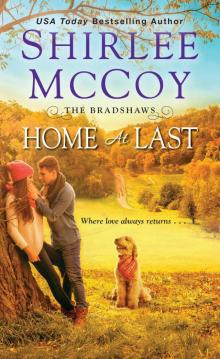 Home at Last
Home at Last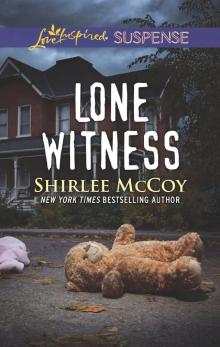 Lone Witness
Lone Witness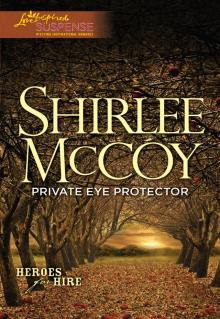 Private Eye Protector
Private Eye Protector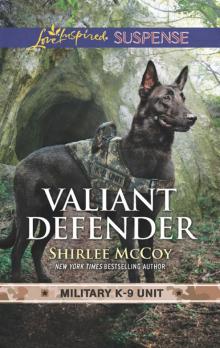 Valiant Defender
Valiant Defender Running Scared
Running Scared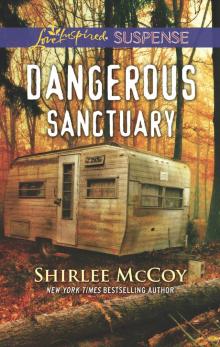 Dangerous Sanctuary
Dangerous Sanctuary Capitol K-9 Unit Christmas: Protecting VirginiaGuarding Abigail
Capitol K-9 Unit Christmas: Protecting VirginiaGuarding Abigail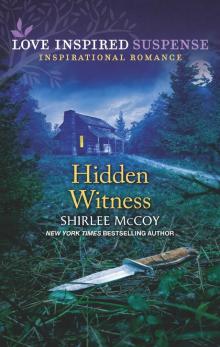 Hidden Witness
Hidden Witness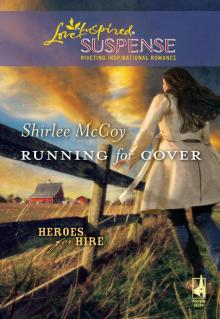 Running for Cover
Running for Cover Gone
Gone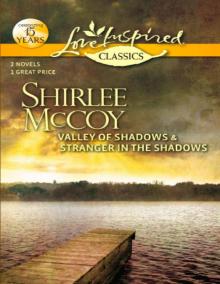 Valley of Shadows and Stranger in the Shadows: Valley of ShadowsStranger in the Shadows
Valley of Shadows and Stranger in the Shadows: Valley of ShadowsStranger in the Shadows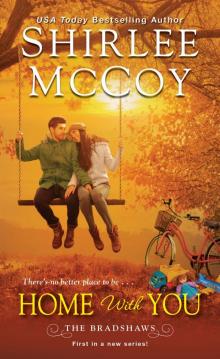 Home with You
Home with You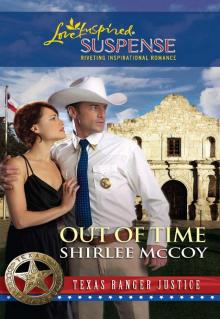 Out of Time
Out of Time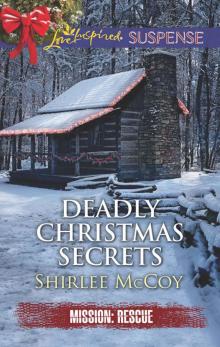 Deadly Christmas Secrets
Deadly Christmas Secrets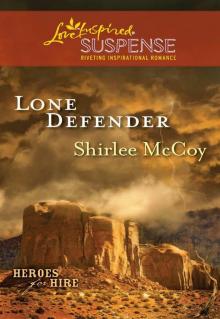 Lone Defender (Love Inspired Suspense)
Lone Defender (Love Inspired Suspense)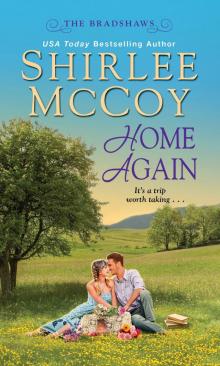 Home Again
Home Again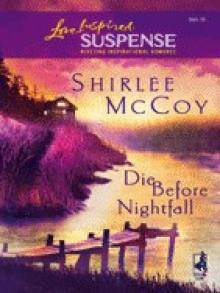 Die Before Nightfall
Die Before Nightfall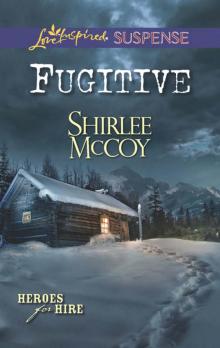 Fugitive
Fugitive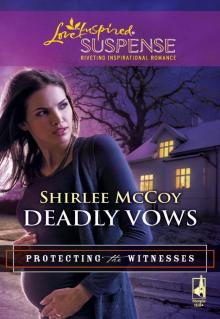 Deadly Vows
Deadly Vows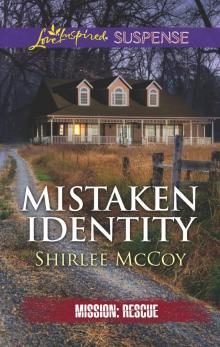 Mistaken Identity
Mistaken Identity Capitol K-9 Unit Christmas
Capitol K-9 Unit Christmas The Christmas Target
The Christmas Target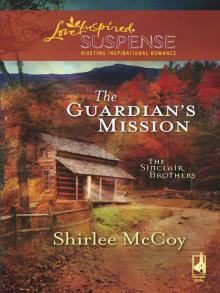 SB01 - The Guardian's Mission
SB01 - The Guardian's Mission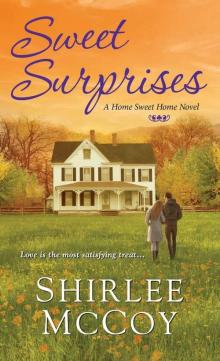 Sweet Surprises
Sweet Surprises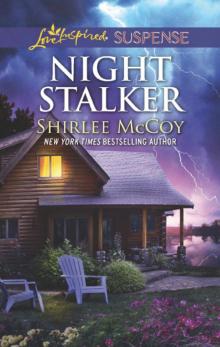 Night Stalker
Night Stalker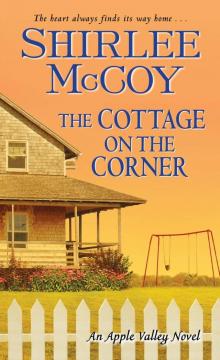 The Cottage on the Corner
The Cottage on the Corner Love Inspired Suspense January 2014
Love Inspired Suspense January 2014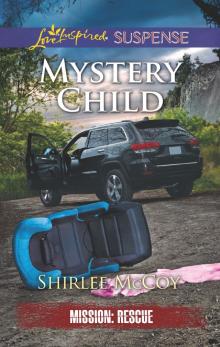 0373447477 (R)
0373447477 (R) Love Inspired Suspense March 2015 - Box Set 1 of 2: Protection DetailHidden AgendaBroken Silence
Love Inspired Suspense March 2015 - Box Set 1 of 2: Protection DetailHidden AgendaBroken Silence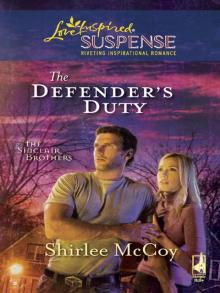 SB03 - The Defender's Duty
SB03 - The Defender's Duty Love Inspired Suspense June 2015 - Box Set 2 of 2: Exit StrategyPaybackCovert Justice
Love Inspired Suspense June 2015 - Box Set 2 of 2: Exit StrategyPaybackCovert Justice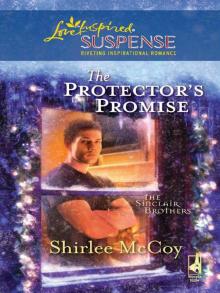 The Protector's Promise (The Sinclair Brothers)
The Protector's Promise (The Sinclair Brothers) Bodyguard
Bodyguard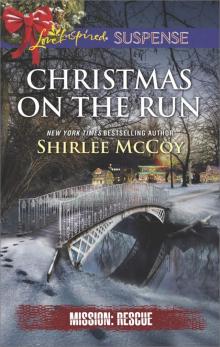 Christmas on the Run
Christmas on the Run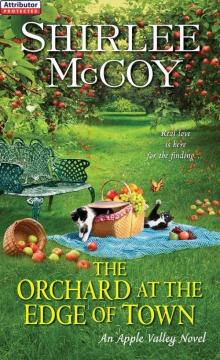 The Orchard at the Edge of Town
The Orchard at the Edge of Town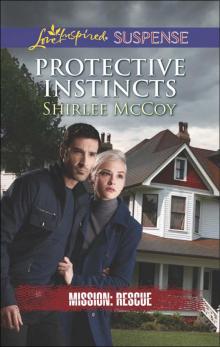 Protective Instincts
Protective Instincts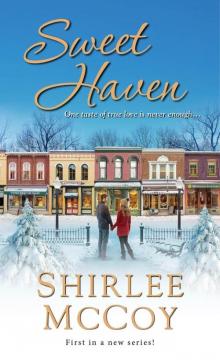 Sweet Haven
Sweet Haven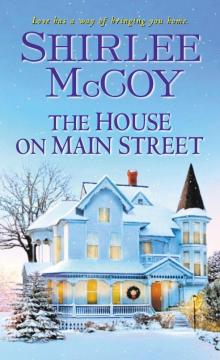 The House on Main Street
The House on Main Street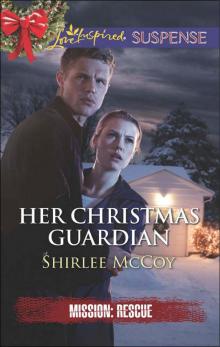 Her Christmas Guardian
Her Christmas Guardian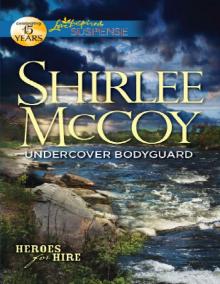 Undercover Bodyguard
Undercover Bodyguard